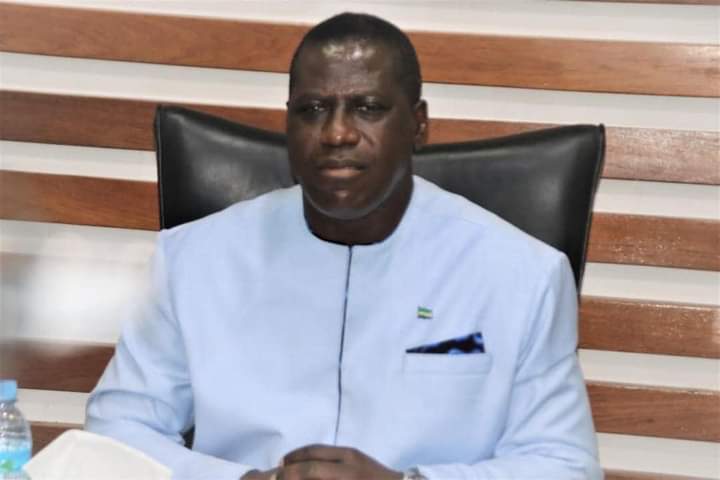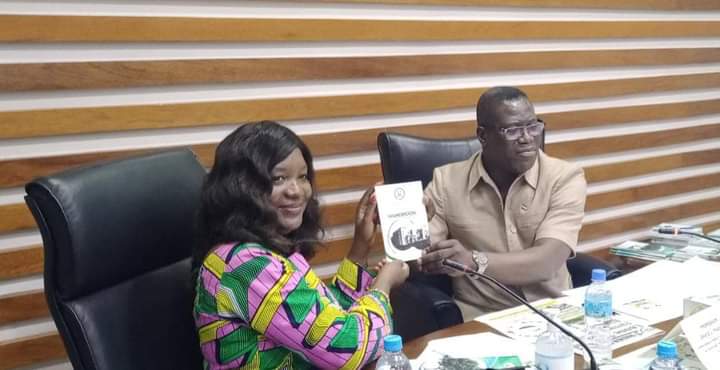The Ministry of Foreign Affairs has unveiled five documents it says will serve as blueprint for its effective operation, with the goal of enhancing Sierra Leone’s foreign policy.
Foreign Minister Professor David Francis presented the documents at a retreat for diplomats and staff of the ministry on Saturday, January 8.
The two-day gathering, which started on January 7, brought together the heads of the country’s foreign missions and senior management of the ministry. Officials say the documents entail a guide for the day-to-day operations of the ministry and its 24 foreign missions abroad.
The documents include the Foreign Affairs and International Cooperation Strategic Plan 2022- 2025, Guidelines Governing the Appointment and Functions of Honorary Consuls and the Administrative Guide for Ambassadors, Heads of Chancelleries and other Foreign Service Officers representing the country abroad. Also launched is the Foreign Service Handbook and the Foreign Service Diplomatic List of Staff.
According to a press statement, these documents comprise the roadmap for an effective service delivery by both the ministry and its foreign missions, promotion of the core values of diplomatic relations between Sierra Leone and other countries in terms of representation, coordination, supervision, clarity of roles and responsibilities between the heads of missions and chancelleries, and the promotion of the country’s national interest.
The retreat, according to the Foreign Ministry, was designed to deliberate on the country’s Foreign Policy, vis-a-vis strategic operational issues aimed at strengthening engagements and diplomatic representation both at national and international levels. It adds that it also aimed at enhancing quality of work relationship and teamwork for effectiveness and efficiency in pursuing the country’s foreign policy objectives.
Prof. Francis was quoted saying that the retreat was meant to address issues like lack of clarity in the roles and responsibilities of heads of missions and chancelleries, disbursement and procurements, as well as misunderstanding of the role of the ministry as the coordinating entity for all overseas missions.
Prof. Francis took over the foreign ministry in May 2021, following his redeployment from the office of Chief Minister, a position he pioneers from April 2018.

Francis’ appointment as Sierra Leone’s top diplomat has been presented as part of President Julius Maada Bio’s shift to enhance the country’s international relations, which has been trumpeted as a top priority for the administration, with an initial focus on Economic Diplomacy.
As captured in the governing Sierra Leone People’s Party’s 2018 elections manifesto, the broad vision of this policy revolves around using trade and investment as critical drivers to accelerate sustainable growth and development.
In June 2021, weeks after taking over the Foreign Ministry, Prof. Francis announced a further shift in the policy to “development diplomacy,” a move he attributed to the ongoing COVID-19 pandemic which he said had caused many countries to change approach to aid due to the consequent global economic depression.
At the heart of Sierra Leone’s foreign policy has been efforts to rebrand the country’s image from a war torn, disease stricken and corruption infested nation to a peaceful, beautiful and resource-endowed nation.
But this effort has been marred by persistent reports of corruption, including in the foreign service. Addressing it has been further complicated by infighting among officials serving in the country’s diplomatic missions abroad.
“The pursuance of Sierra Leone’s foreign policy objectives by all overseas missions is the raison d’être for their existence. In this regard, all activities and engagements of Sierra Leone’s missions should be in pursuance of fulfilling Sierra Leone’s Foreign Policy objectives,” Francis told audience at the retreat. “Therefore, message discipline, coordination and teamwork is important among all Heads of Missions,” he added.






















